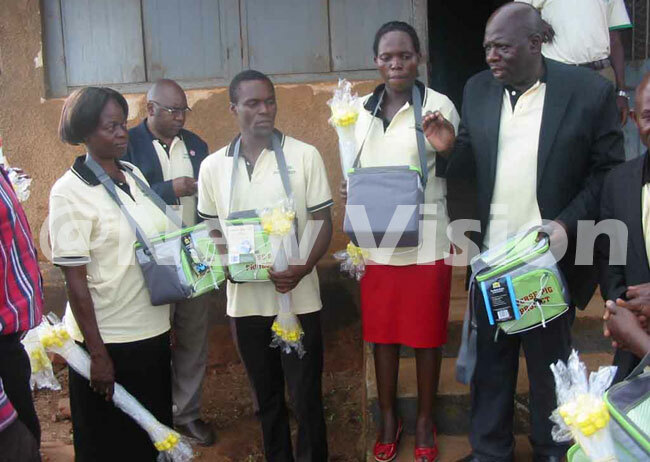Makerere don gives out pig semen to farmers
The college also gave out charts that guide farmers on heat detection in pigs.
The College of Agriculture (Animal production) at Makerere University has distributed dozes of pig semen to farmers in various districts to improve pig production and upscale Artificial Insemination (AI) Technology in rural areas.
The exercise was carried out in the districts of Kamuli, Buikwe and Jinja following the training of over 80 people in management and conducting artificial Insemination of pigs.
The college also gave out start-up kits that include cathetas, specialised bags for carrying the semen, and the charts that guide farmers on heat detection in pigs.
Associate Professor Donald Kugonza said the college wanted to train farmers in better management of their pig farms and breeds and build their capacity.
Kugonza said before the introduction of the AI technology, farmers had poor methods of increasing production. He said such poor methods lead to the spread diseases such as African swine fever.

Kugonza said before the introduction of the AI technology, farmers had poor methods of increasing production. He said such poor methods lead to the spread diseases such as African swine fever.

PIC: The trainees with their kits. (Credit: Noah Jagwe)
"The idea is that we want to make the pig farmers happy by increasing pig production," Kugonza said. "Each insemination is able to give the same number of piglets you would have gotten with the boer and even more," he added.Previously, farmers have been exchanging a piglet for a service of a boer.The farmer would also be responsible for feeding the boer, which is costly.
Kugonza said farmers must continue to feed their animals very well to achieve better results, for instance, the size of pigs and low mortality.
He revealed that they are going to establish semen collection centres at district levels to bring the services nearer and reduce transport costs for farmers.
The exercise is part of the bigger project: Improving pig productivity through piglet nutrition nutrition options and up scaling pig artificial insemination.
Dr Kuunya James, the district veterinary officer of Kamuli, said the initiative is going to improve the quality of pig breeds.
Dr Tom Kasadha, the district Veterinary Officer of Jinja, said the pig project will improve the economic status of locals in Jinja. He said the area is better placed for the project, since feeds are affordable.